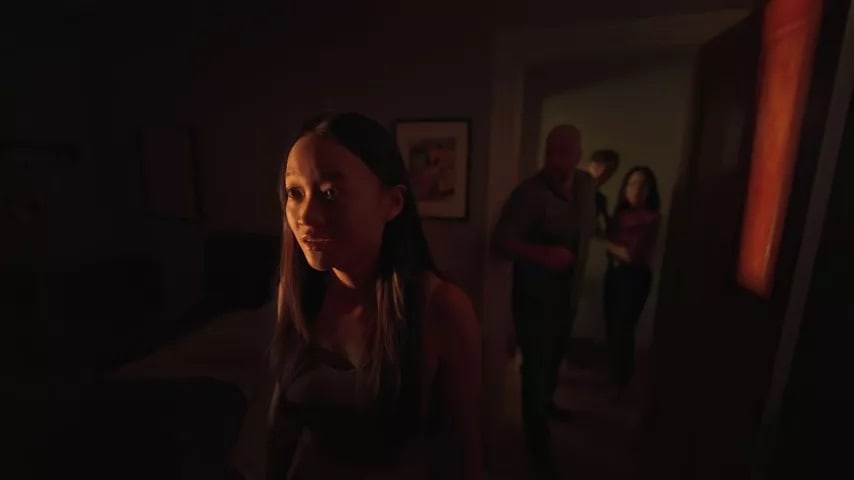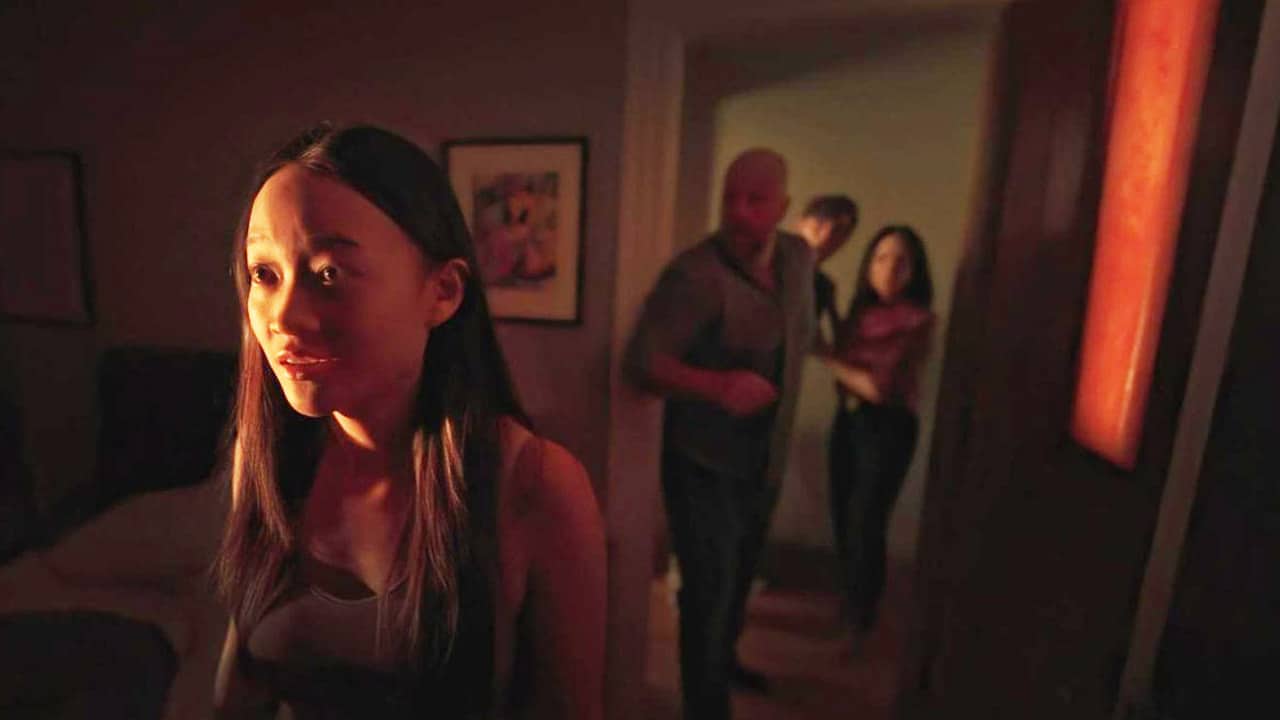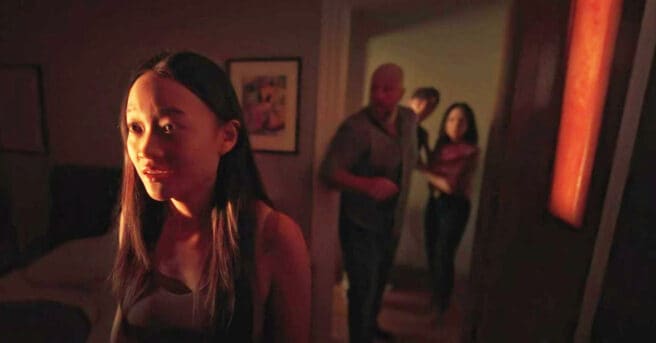Steven Soderbergh’s Presence is a unique and unusual ghost story, shot in an innovative way.

PLOT: A family moves into a house with a supernatural presence.
REVIEW: I’m sure I can be forgiven for rolling my eyes when I heard the logline for Presence. I’ve seen my share of haunted house movies and was wary of anything being added to this well-worn genre. However, director Steven Soderbergh and his writer David Koepp have once again subverted expectations, making this a supernatural tale that’s light on horror but heavy on heart.
The big selling point here will be that Soderbergh’s camera is always from the perspective of the presence itself (no one uses the term ghost here), making it an interesting visual exercise. The family is observed from an arm’s length, with us eventually realizing that the presence itself isn’t necessarily malignant, nor is it even aware of why it’s in their home in the first place.
The movie mostly centers around Callina Lang’s Chloe, who is mourning the death of her best friend from an opioid overdose. Her brother, Eddy Maday’s Tyler, has a cruel streak and chases popularity at school. At the same time, her mother, played by Lucy Liu, is often drunk and seems on the verge of being arrested for a white-collar crime (which we never learn the details of). Luckily, Chloe’s father, played by This is Us star Chris Sullivan (who worked with Soderbergh on The Knick), is supportive if also preoccupied with the notion that his wife’s crimes may make him guilty in the eyes of the law. Chloe is also pursued romantically by an older boy (West Mulholland), whom the presence seems to be trying to make Chloe stay away from.

More than anything, Presence seems like a filmmaking exercise for Soderbergh, with him using technological innovations over the last few years to give the film a unique identity. It continues the experimental vibe he kicked off following his short-lived early retirement, and I’ll take something like this over his watered-down Magic Mike’s Last Dance any day.
By its nature, Presence is a film you have to be patient with, and the style of the film takes a while to get into because of how unconventional it is. Yet, in the second half, as it becomes more emotionally grounded and the stakes get higher, Presence starts to really work. The cast is excellent, with Callina Lang a real find in the film’s most important role. Eddy Maday initially comes off as a near sociopathic bully, but as the movie goes on, the better side of his character starts to peer through. Meanwhile, Chris Sullivan is touching as the overwhelmed but loving father who also lives to regret his culpability in whatever his wife might have done. Lucy Liu is nuanced as the loving but preoccupied and anxious mother who knows her time might be running out and tries to make up excuses for her actions by drunkenly telling her favoured child that whatever she did, it was out of love for her family. To Liu’s credit, she never tries to water this character down and manages to hold our sympathy throughout.
While its experimental nature means that Presence will be one of Soderbergh’s more niche efforts, it’s still technically impeccable and moving once you settle into it. It’s an interesting exercise for a director who never fails to innovate.


